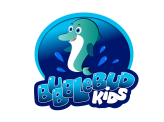
In the landscape of early childhood education, play is not just a way to pass the time; it is a critical component of development. Through play, young children learn to engage with their environment, develop critical thinking skills, and cultivate social and emotional intelligence. Here, we’ll explore the significance of play in early childhood learning and offer practical ideas for integrating play-based activities into the curriculum, especially using innovative solutions like BubbleBud Kids.
Understanding Play-Based Learning
Play-based learning is a dynamic approach where teaching strategies are designed around the natural play behaviors of children. This method supports the idea that children naturally explore and learn about the world through play. Play-based curricula do not differentiate between learning and play; instead, they blend them seamlessly, ensuring that learning experiences are both enjoyable and educational.
Benefits of Play in Early Childhood Development
-
Cognitive Development: Play stimulates children’s cognitive abilities, enhancing their problem-solving skills and encouraging creativity. It boosts their understanding of concepts like cause and effect, spatial relationships, and basic math.
-
Social Skills: Through group play, children learn valuable social skills such as sharing, negotiation, and empathy. These are crucial for building healthy interpersonal relationships throughout life.
-
Emotional Intelligence: Play allows children to express and manage their emotions. Role-playing, for instance, helps them understand different perspectives and develop empathy.
-
Physical Development: Physical play promotes motor skills, balance, and coordination. It also establishes healthy physical habits from an early age.
-
Language Skills: As children negotiate roles and rules in their play, they develop and refine their language skills. This includes expanding their vocabulary and improving communication.
Incorporating Play-Based Activities into the Curriculum
To effectively integrate play into educational settings, educators can adopt the following strategies, supported by the features of BubbleBud Kids’ Learning Management System:
-
Thematic Learning Stations: Create stations around the classroom that cater to different interests like a mini marketplace, a construction zone, or a science lab. Each station should encourage exploration and problem-solving, supported by digital tools and games from BubbleBud Kids that align with the theme.
-
Role-Playing Scenarios: Develop scenarios that allow children to step into various roles, from astronauts to zookeepers. This can be enriched with BubbleBud Kids’ virtual reality experiences, which provide realistic and engaging settings for children to immerse themselves in different worlds.
-
Outdoor Adventures: Incorporate nature-based play. Activities like treasure hunts or nature walks can be enhanced with augmented reality features from BubbleBud Kids, making the natural exploration more interactive and informative.
-
Art and Creativity Workshops: Utilize art-based play to encourage creativity. Digital drawing pads and interactive storytelling sessions available on BubbleBud Kids can be excellent tools for artistic expression and literacy.
-
Interactive Games: Leverage the suite of educational games provided by BubbleBud Kids that are designed to foster learning through play. These games can be used to reinforce concepts from mathematics to language arts in a playful and engaging manner.
-
Collaborative Projects: Encourage group projects where children can work together to solve problems or create something. This promotes cooperation and teaches them the value of different perspectives.
Incorporating play into the curriculum is not just about keeping children engaged; it’s about providing them with a foundation for understanding the world. BubbleBud Kids offers an array of tools that can bring this dynamic approach to life in your classroom. Explore our solutions and discover how our innovative technologies can transform your educational environment. Let’s make learning playful, engaging, and impactful for every child.


